The Beatles had met at Ringo Starr’s house over the previous weekend in an attempt to resolve the issues that had led to George Harrison walking out of the Get Back/Let It Be sessions on 10 January 1969.
The meeting was not a success, but in the absence of any other ideas, the three remaining Beatles regrouped at Twickenham Film Studios to continue work on the project.
Unsurprisingly, Harrison did not show up, and John Lennon too was absent for much of the day. Ringo Starr was the first to arrive, and was joined shortly afterwards by Paul and Linda McCartney. Lennon was late arriving and initially impossible to contact by telephone. Eventually Mal Evans got through and McCartney spoke to his bandmate.
It’s going to be such an incredible sort of comical thing, like in 50 years’ time. ‘They broke up ’cause Yoko sat on an amp.’ Just something like that. What? ‘You see, John kept bringing this girl along.’ What? It’s not as though there’s any sort of earth-splitting rows or anything.
The bulk of the recordings made on this day featured conversations rather than music, and reveal much about the prevailing thoughts within the group at the time. A lunchtime conversation between Lennon and McCartney, in particular, proved particularly valuable in understanding relations within the band. The conversation was not filmed, but a microphone hid in a flowerpot by director Michael Lindsay-Hogg’s crew captured the audio, which was cleaned up for and included in Peter Jackson’s 2021 documentary Get Back.
Lennon: It’s like George said, he didn’t get enough satisfaction anymore, because of the compromise he had to make to be together. It’s a festering wound that we’ve allowed to… and yesterday we allowed it to go even deeper, and we didn’t give him any bandages. And when he is that far in, we have egos.McCartney: The thing is, that’s what I was trying to say to George, you know. Whereas previously I would have said, ‘Take it there with diddle-der-diddle-der’. But I was trying last week to say, ‘Now take it there. Anything you like. Put whatever you…’
Lennon: You see, the point is now, we both do that to George this time, and because of the build-up to it.
McCartney: Yeah, we treat him a bit like that. See, ’cause he knows what we’re on about. But I do think that he’s right. That’s why I think we’ve got the problem now, you know, the four of us. You go one way, George one way, and me another. But I know it’ll apply to all of us, if one day you can all be singing like you sing. George can be really playing, I mean, like he plays, not like I keep try8ing to make him play.
Lennon: Yeah, OK, because you’re afraid that how he’ll play won’t be like you want him to play, and that’s what we do, and that’s what you do to me. And I’m not gonna tell you what to play.
McCartney: See, that… that seems to be the trouble, is that if you’d have been able to say that on the occasion, just even to say, ‘Look, I’m not gonna say anything about the song because it’s very difficult, I’m gonna really try and now…’
Lennon: You know, I’ve always done the numbers like that. Now, the only regret about the past numbers is when, because I’ve been so frightened, I’ve allowed you to take it somewhere where I didn’t want. And then, that my only chance was to let George take over, or interest George in it. If you give me your suggestions, let me reject them and pinch the ones I like… is where my writing side is. Same goes for the arranging. I don’t want it to… I don’t know.
McCartney: I know. I do know. I know what you mean, yeah.
Lennon: ’Cause there was a period where none of us could actually say anything about your arrangements ’cause you would reject it all. I’d have to tell George and I would just say, you know, like you do about me. You know, ‘I’m Paul McCartney’, and a lot of the times you were right, and a lot of the times you were wrong. Same as we always are. But I can’t see the answer to that, because you’ve suddenly got it all, you see.
McCartney: I really don’t want you…
Lennon: Well all right. I’m just telling you what I think. I don’t The Beatles revolve around the four people. It might a f*****g job.
McCartney: You know, but I tell you what. I tell you one thing, what I think. The main thing is this: you have always been boss. Now I’ve been, sort of, secondary boss.
Lennon: Not always.
McCartney: No, listen. Listen. No, always! Really, I mean, it is gonna be much better if we can actually just stick together and say, ‘Look George, on ‘I’ve Got A Feeling’ I want you to do it exactly like I play it.’ And he’ll say, ‘I’m not you, and I can’t do it exactly like you do it.’
Lennon: But this year, what you’ve been doing, and what everybody’s been doing, I’ve not only felt guilty about the way we’re all guilty about our relationship to each other, ’cause we could do more. And look, I’m not putting any blame on you. I’ve suddenly realised this, because that was my game, you know, but goals, they’re still the same. Self-preservation, you know. I know what I like, I’ve let you do what you want and George too, you know.
McCartney: Yeah, I know.
Lennon: If we want him, if we do want him, I can go along with that, because the policy has kept us together.
McCartney: Well, I don’t know, you know. See, I’m just assuming he’s coming back. If he isn’t, then he isn’t, then it’s a new problem. And probably when we’re all very old, we’ll all agree with each other, and we’ll all sing together.
Lennon admits that their music has become formulaic, and contrasts it with the excitement of making Revolver in 1966. Presciently, he remarks that the only challenge left for them is to go solo, although he is uncertain about stepping away from The Beatles.
McCartney offers encouraging phrases towards Lennon and Starr, and says they should stop worrying about minor details in the songs and concentrate instead on performing to the best of their abilities. He also wonders what would be the best way to steer Harrison towards a particular way of playing.
After lunch, Lennon, McCartney and Starr discussed meeting again with Harrison, but learned from Mal Evans that he had gone to Liverpool and was due back in two days’ time. The remaining Beatles decide to stay at Twickenham and continue rehearsing.
In the afternoon Lennon and McCartney refined some of their songs, particularly ‘Get Back’. McCartney struggled to find suitable surnames for Sweet Loretta Marsh and Jo Jo Jackson, although he settled on Tucson, Arizona for Jo Jo’s hometown.
McCartney: Jo Jo left his home in Tucson, Arizona.Lennon: Is Tucson in Arizona?
McCartney: Yeah. It is, yeah. It’s where they make [Western television series] High Chaparral.
The three Beatles spent another full day at Twickenham before giving up and relocating to Apple Studios in London.
Performances and snippets of ‘You’re My World’, ‘Get Back’, ‘Build Me Up Buttercup’, and ‘No Other Love’ from this day appeared in part two of the 2021 documentary Get Back.
The full list of songs played on this day (plus primary composer/best-known performer):
- You’re My World (Cilla Black)
- No Other Love (Rodgers-Hammerstein)
- ‘Ob-La-Di, Ob-La-Da’ (two versions)
- ‘Otis Sleep On’ (Arthur Conley)
- ‘Baby, Come Back’ (The Equals)
- ‘Build Me Up Buttercup’ (The Foundations; three versions)
- ‘Dig A Pony’ (two versions)
- ‘Get Back’ (15 versions)
- ‘On The Road Again’ (Canned Heat)
View the complete list of songs played during the January 1969 Get Back/Let It Be sessions.
Also on this day...
- 2017: Beatles electronics guru Magic Alex dies
- 1990: Paul McCartney live: Wembley Arena, London
- 1969: US album release: Yellow Submarine
- 1968: Recording: Wonderwall Music by George Harrison
- 1966: George Harrison and Mick Jagger visit Dolly’s nightclub, London
- 1965: Live: Another Beatles Christmas Show
- 1963: Television: Thank Your Lucky Stars
- 1962: The Beatles live: Hambleton Hall, Liverpool
- 1961: The Beatles live: Aintree Institute, Liverpool
Want more? Visit the Beatles history section.


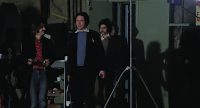
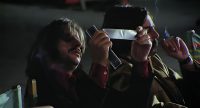
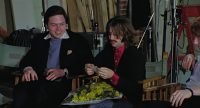
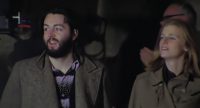
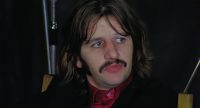
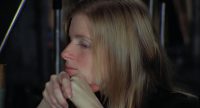

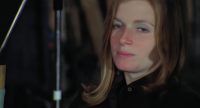
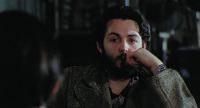
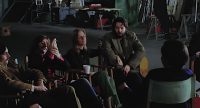
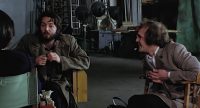
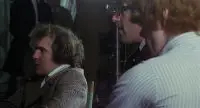

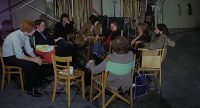
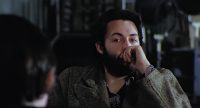
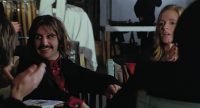
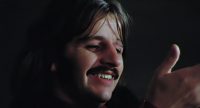
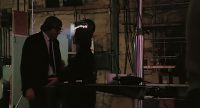
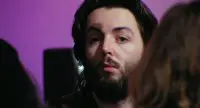

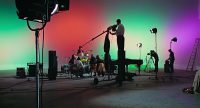
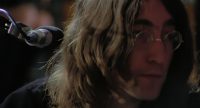

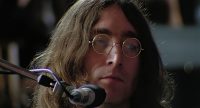
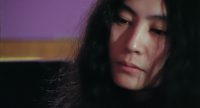
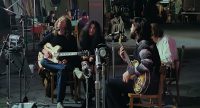
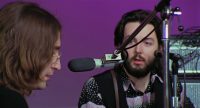
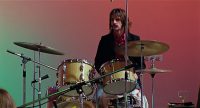
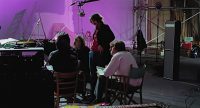
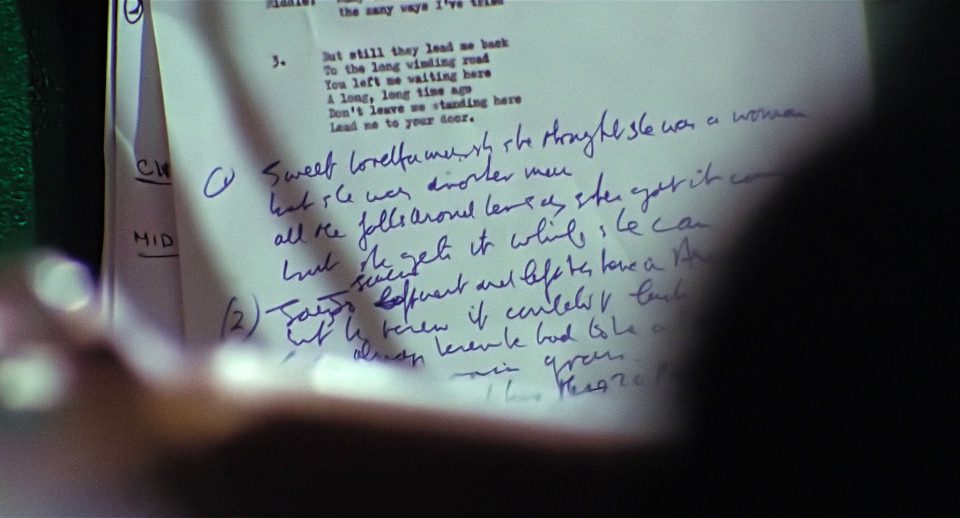
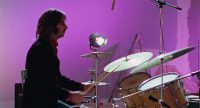
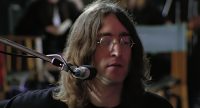
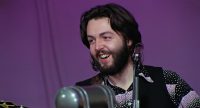
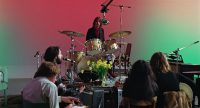
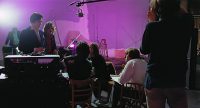
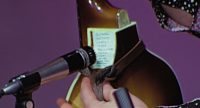
Is there audio of this conversation between lennon/mac/starr? Or where does the account of it come from? Cheers
Yes the audio exists and is included in the Peter Jackson film The Beatles: Get Back. I watched it recently so can fully verify its existence.
Hello everyone.
“You’re My World” and “No Other Love” were really played on Jan. 13 ?
I’ve never listened to it.
Someone please tell me. thanks.